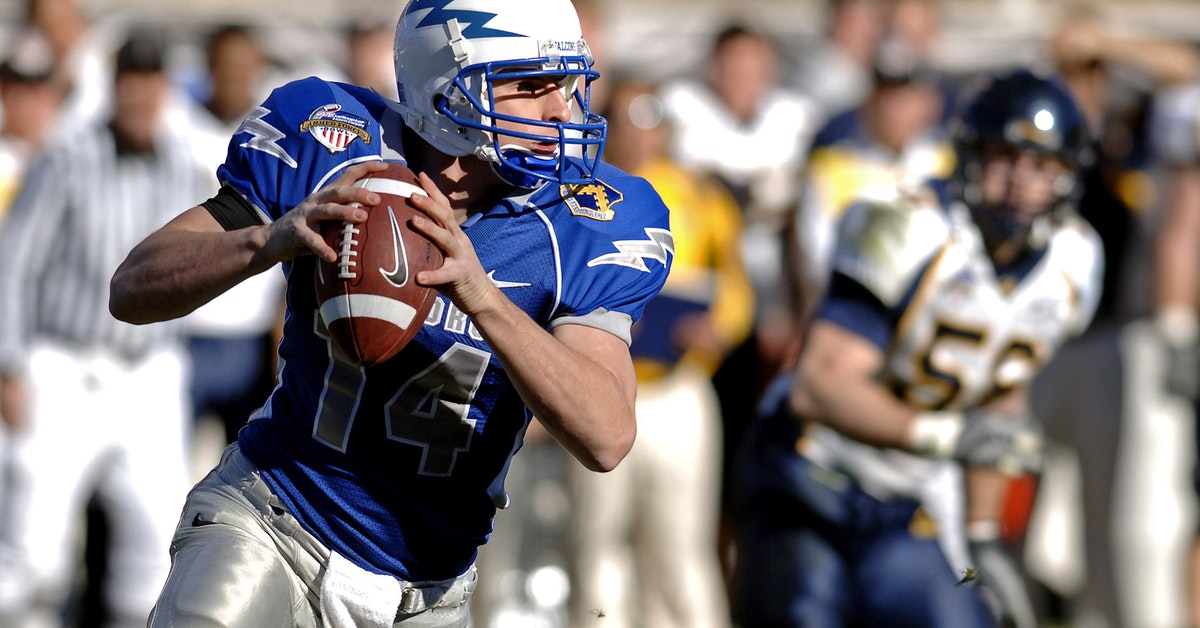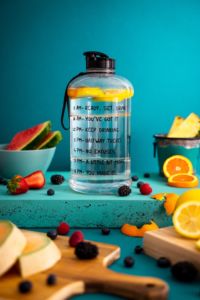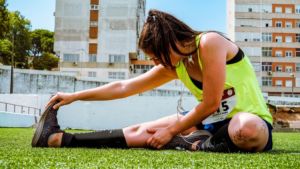
2022 is finally here, and many people are working on self-improvement and health-related goals for the new year. If you are an athlete or just embarking on a new and improved fitness routine, it’s a good idea to improve other habits that can affect your health and performance. To avoid burning out on your resolutions, pick one small change to make and stick with it until it becomes a habit. It’s easier to reach goals with one small change at a time than with large, unsustainable changes.
Here are three ideas for New Year’s resolutions for athletes.

1. Pay Attention to Hydration
Like the other things on this list, hydration is important for everyone, but athletes need to pay special attention to their hydration status. It’s not uncommon for athletes to be mildly dehydrated before, during, and after a practice or competition. This can lead to fatigue and poorer performance, as well as health consequences. The amount of water you need varies depending on activity level and weather conditions. If you are running in a hot, humid environment or for an extended amount of time, you may need sports drinks with electrolytes in addition to plain water.
A good way to know how hydrated you are is to weigh yourself before and after a workout or practice. Use a scale that gives both pounds and ounces so you can see subtle changes. A loss of 2% or more of your total body weight indicates dehydration. To replace that water, you need to drink 16-20 ounces of fluid for every pound you lost. Do this over a few hours after the end of your workout. For instance, if a 170-pound athlete notices that their weight drops by 3.4 pounds or more, they need to rehydrate by drinking between 56 and 70 ounces of water.
Of course, it’s even better to hydrate appropriately during physical activity. Drink small sips of water or take a few minutes break every so often to rehydrate. This is easier during some activities than others, but drinking while being active will help prevent fatigue and muscle cramping.
Athletes working out in cold conditions or the water need to take special care. You may not feel as thirsty in the cold or notice how much you are sweating in the pool. Assume that you need water even if you don’t feel thirsty.
2. Don’t Forget to Eat Your Vegetables
As an athlete, it can be easy to get caught up in how many carbs or how much protein you need and forget to eat a nutritionally well-rounded meal. Extreme diets that cut out whole food groups for long periods are unhealthy. You need to give your body the nutrients and antioxidants it needs to perform well at a cellular level. This means giving your body enough healthy carbohydrates to give you mental and physical energy, enough protein for muscle growth and tissue repair, and fruits and vegetables that contain fiber and vitamins.
An easy way to remember to eat your fruits and veggies is to add one to each meal. If this seems like a stretch, try adding a vegetable or fruit to just one meal or snack, and then work your way up.
Speaking of snacks, it’s important to eat several small meals per day to keep your blood sugar steady and your energy levels up. Easy-to-eat vegetables like celery, carrots, jicama, and snap peas have great snack time potential. So do fruits like avocado, pears, apples, and bananas. Legumes such as chickpeas (garbanzo beans) are extremely versatile and are available roasted and salted or ground into hummus. All of these foods provide important vitamins, minerals, and antioxidants. Colorful fruits and vegetables contain chemicals that can help prevent cancer and boost your immune system. People who eat a diet rich in fruits, vegetables, whole grains, and healthy fats have lower heart disease and cancer rates.
Physical activity can help keep you healthy, but everyone needs a healthy diet to support their activity and prevent disease.

3. Baby Your Musculoskeletal System
A concert pianist makes sure his instrument is always fine-tuned. As an athlete, your body is your instrument. Being active has great benefits for your muscles and bones, but it can also cause strain and trauma. Keeping your muscles, joints, and back in tip-top shape can prevent injury and improve performance.
It can be tempting to skimp on warm-ups or only visit your chiropractor after you’ve been injured. Taking time out for preventative action will save you time, pain, and hassle in the long run. Baby your muscles and joints by always doing a thorough warm-up and stretching before getting into the meat of your workout. Cool down and stretch out again afterward. Pay attention to your body, and never push yourself if you feel pain in a joint or near a tendon. If you do feel pain check with your trainer or chiropractor right away about how to use hot-cold therapy, braces, and other home remedies. They can also help you know when you need professional treatment.
Most professional sports teams keep a chiropractor on contract to adjust their players after practices and games. They’ve found that athletes who receive regular adjustments recover faster, have better coordination and range of motion, and get injured less frequently. You don’t have to be on a professional team to reap these benefits.
Integrated Sports Medicine in Houston
At Vanguard Spine & Sport, we work with athletes of all levels to help them feel and perform at their best. We provide spinal adjustment, sports therapy, joint injections, and other preventative and injury care treatments. Make us part of your healthy New Year’s resolutions and see how regular chiropractic care can make a difference in your performance and wellbeing.



